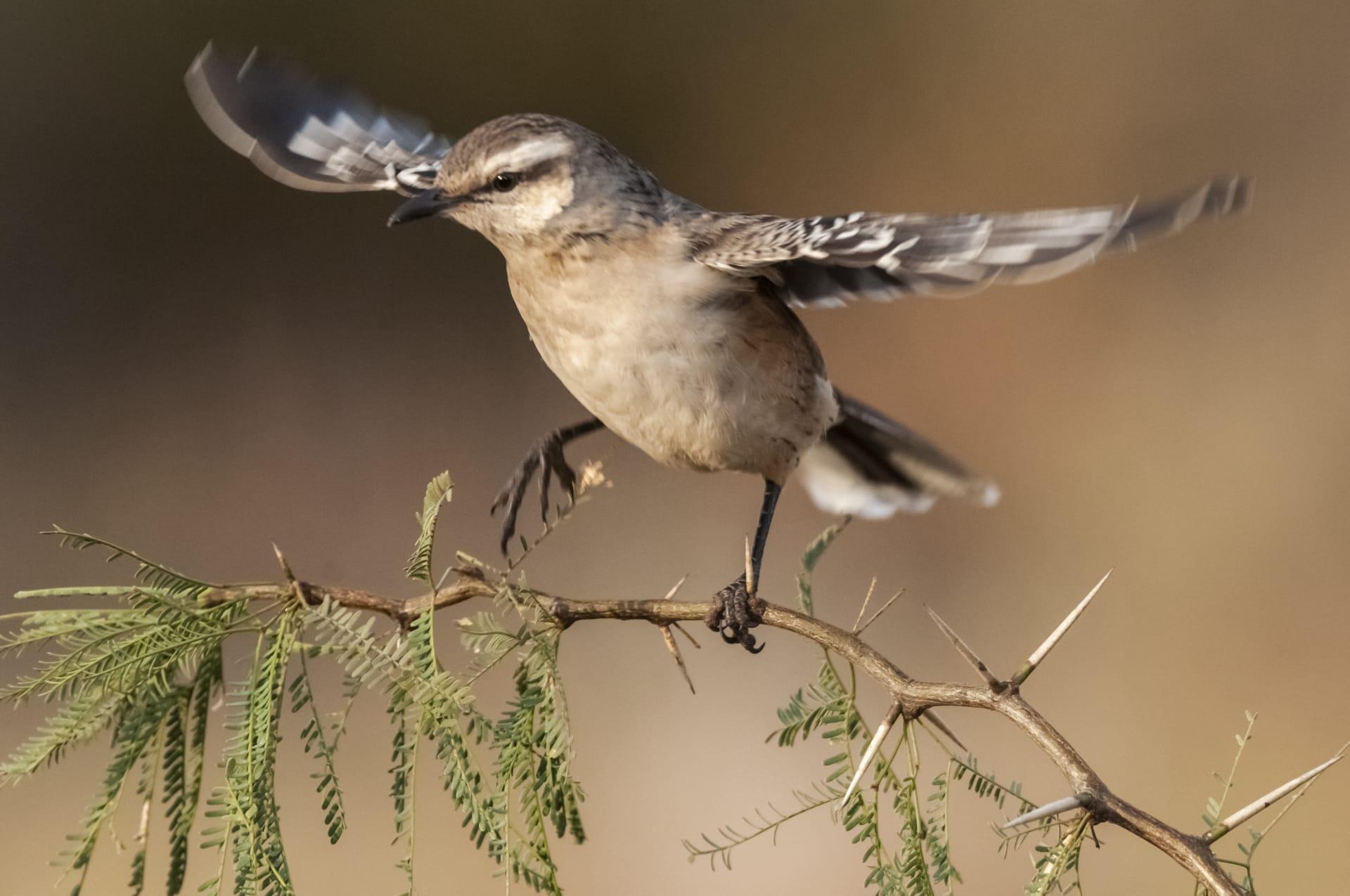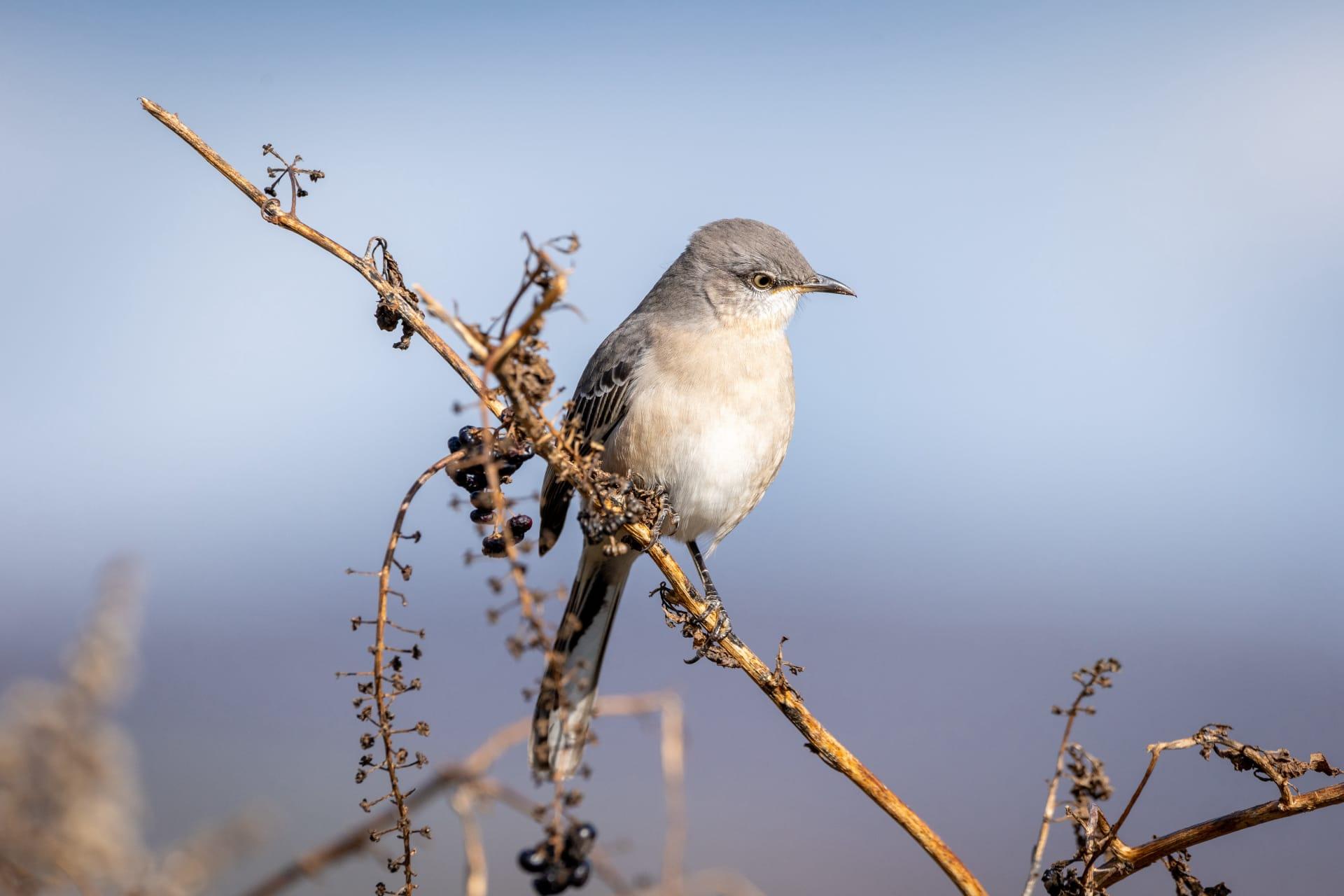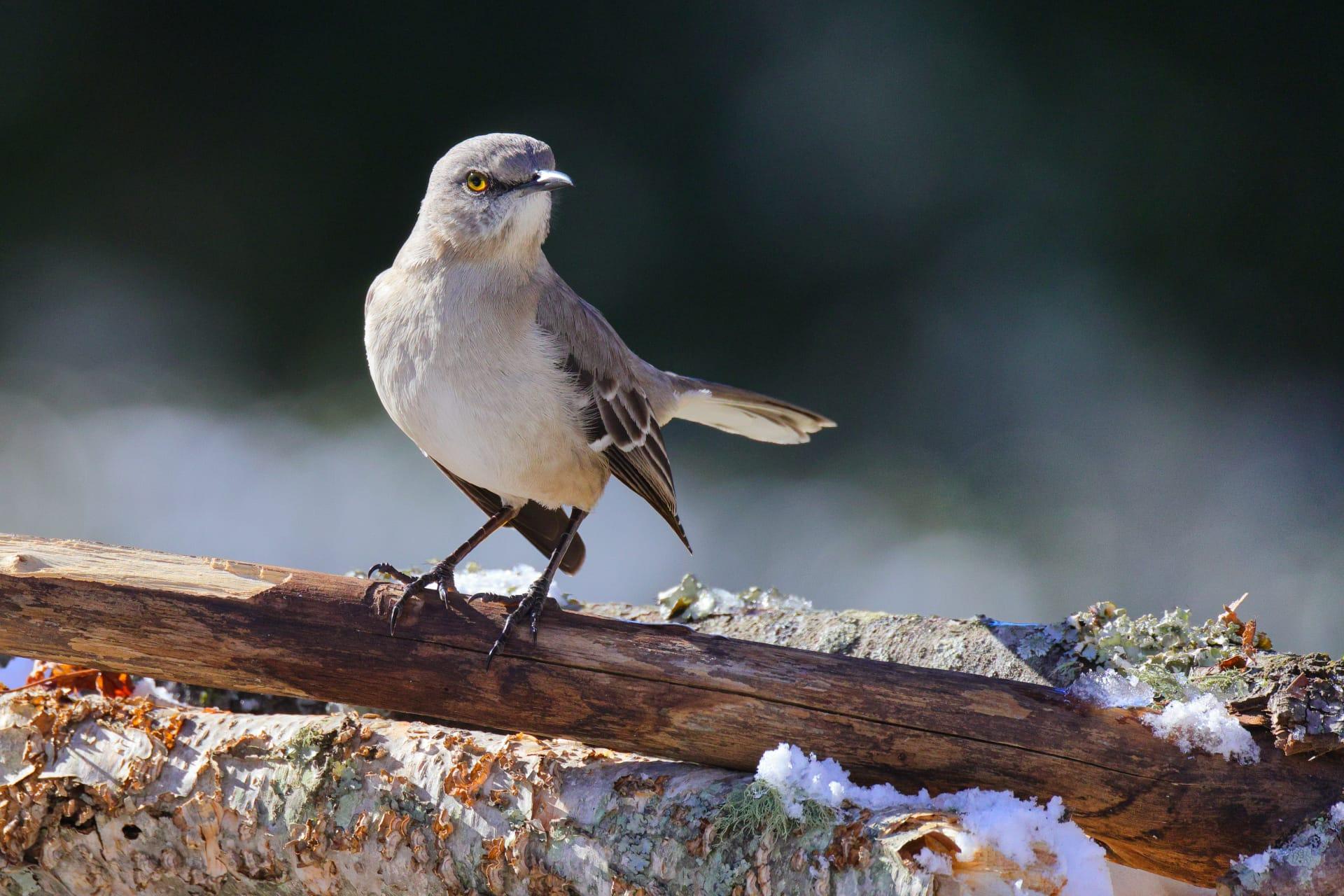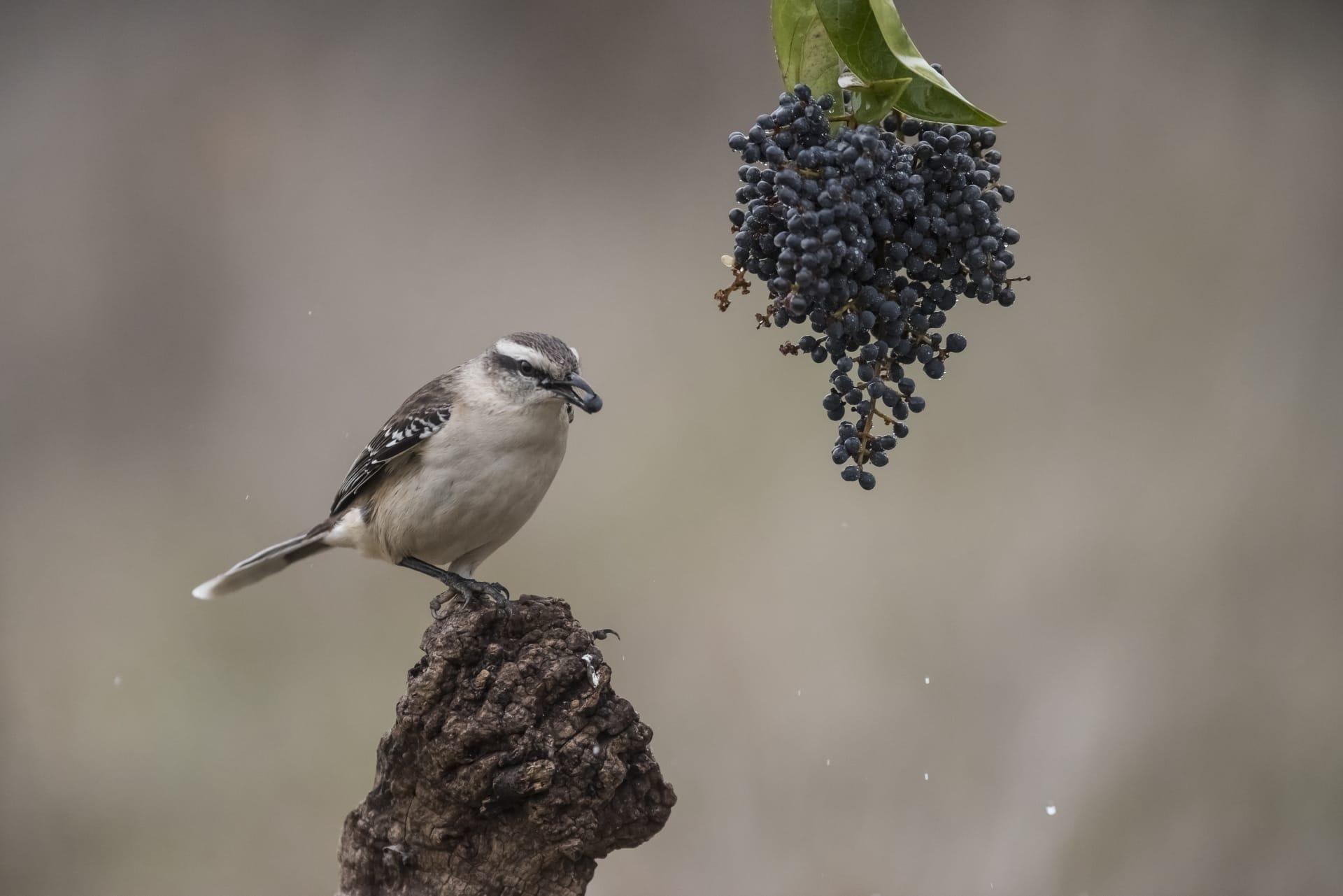Mockingbird Trivia
- Home /
- Trivia Question /
- Animal /
- Mockingbird Trivia
1
Question: What makes the Mockingbird's song so unique and recognizable?
Answer: The Northern Mockingbird, known scientifically as Mimus polyglottos, has an impressive vocal range that allows it to mimic the songs and calls of other bird species. It's not just a copycat, though. A typical Mockingbird can learn and reproduce up to 200 different songs throughout its life, including sounds from its environment like car alarms or gates. This adaptability in their singing, combined with their tendency to sing all day and even at night, especially during the breeding season, makes their song distinct and memorable.
Question: How long do Mockingbirds typically live, and what factors influence their lifespan?
Answer: In the wild, Mockingbirds have an average lifespan of 8 years, but with favorable conditions, some can live up to 20 years. Factors affecting their lifespan include predation, habitat loss, and environmental stressors like pollution. However, these birds are adaptable; they thrive in both rural and urban settings. In urban areas, they benefit from the abundance of food sources and fewer natural predators, which can contribute to a longer life.

2
Question: Is it true that Mockingbirds are aggressive and territorial year-round?
Answer: This is a common misconception. While Mockingbirds are indeed territorial and can become aggressive during the breeding season (typically from late March through July-August), they are not inherently aggressive year-round. They defend their nests and territory from perceived threats, including humans and other animals, but outside the breeding season, they are less territorial and more likely to coexist peacefully with other birds.
Question: Do Mockingbirds only eat insects and small animals?
Answer: Contrary to this belief, the Mockingbird's diet is quite varied. While they do eat insects and small animals, they also consume a significant amount of fruit and berries, especially in winter. Their diet changes seasonally: in spring and summer, they eat more insects and small animals, providing protein needed for breeding and raising their young. In autumn and winter, they shift to fruits and berries, which are more abundant.

3
Question: How do Mockingbirds contribute to their ecosystem?
Answer: Mockingbirds play a crucial role in their ecosystem. As omnivores, they help control insect populations, which can benefit agriculture and backyard gardens. Additionally, their consumption of fruits and berries aids in seed dispersal, promoting plant growth and biodiversity in their habitats. Their adaptability to different environments also makes them important indicators of ecological health.
Question: Can Mockingbirds recognize individual humans?
Answer: Studies have shown that Mockingbirds are indeed capable of recognizing individual humans. Researchers found that these birds could identify a person who previously threatened their nest and would aggressively target them while ignoring others. This remarkable memory and ability to distinguish between different people highlights their intelligence and adaptability to urban environments.

4
Question: Why do Mockingbirds sing at night, and does this behavior change?
Answer: Mockingbirds often sing at night, especially during the full moon or in well-lit urban areas. This nocturnal singing is mainly observed in males during the breeding season, likely to attract a mate or to assert their territory. Interestingly, they may reduce night singing once they have successfully attracted a mate, indicating that this behavior is closely tied to their reproductive strategies.
Question: Are Mockingbirds solitary or social birds?
Answer: Generally, Mockingbirds are solitary, especially when it comes to feeding and territory. However, during the breeding season, they become more social, forming monogamous pairs and engaging in cooperative nest building and feeding of their young. Outside of breeding, they tend to be more independent, though they may gather in small groups during migration or in particularly abundant feeding areas.

5
Question: How does urbanization affect Mockingbird behavior and survival?
Answer: Urbanization has mixed effects on Mockingbirds. On one hand, it provides abundant food sources and fewer natural predators, which can increase their survival rates. On the other hand, urban environments pose challenges like window collisions, vehicle strikes, and exposure to pollutants. Remarkably, Mockingbirds have shown the ability to adapt to urban noise, often singing louder and at higher frequencies to be heard over the din.
Question: Do Mockingbirds have a specific mating dance or ritual?
Answer: During courtship, male Mockingbirds perform a unique display that includes wing-flashing and a series of hops and leaps while singing. This display serves multiple purposes: attracting a female, deterring rival males, and demonstrating the male's health and vitality. The intensity and complexity of the dance and song are key factors in attracting a mate, showcasing the male's skill and fitness.